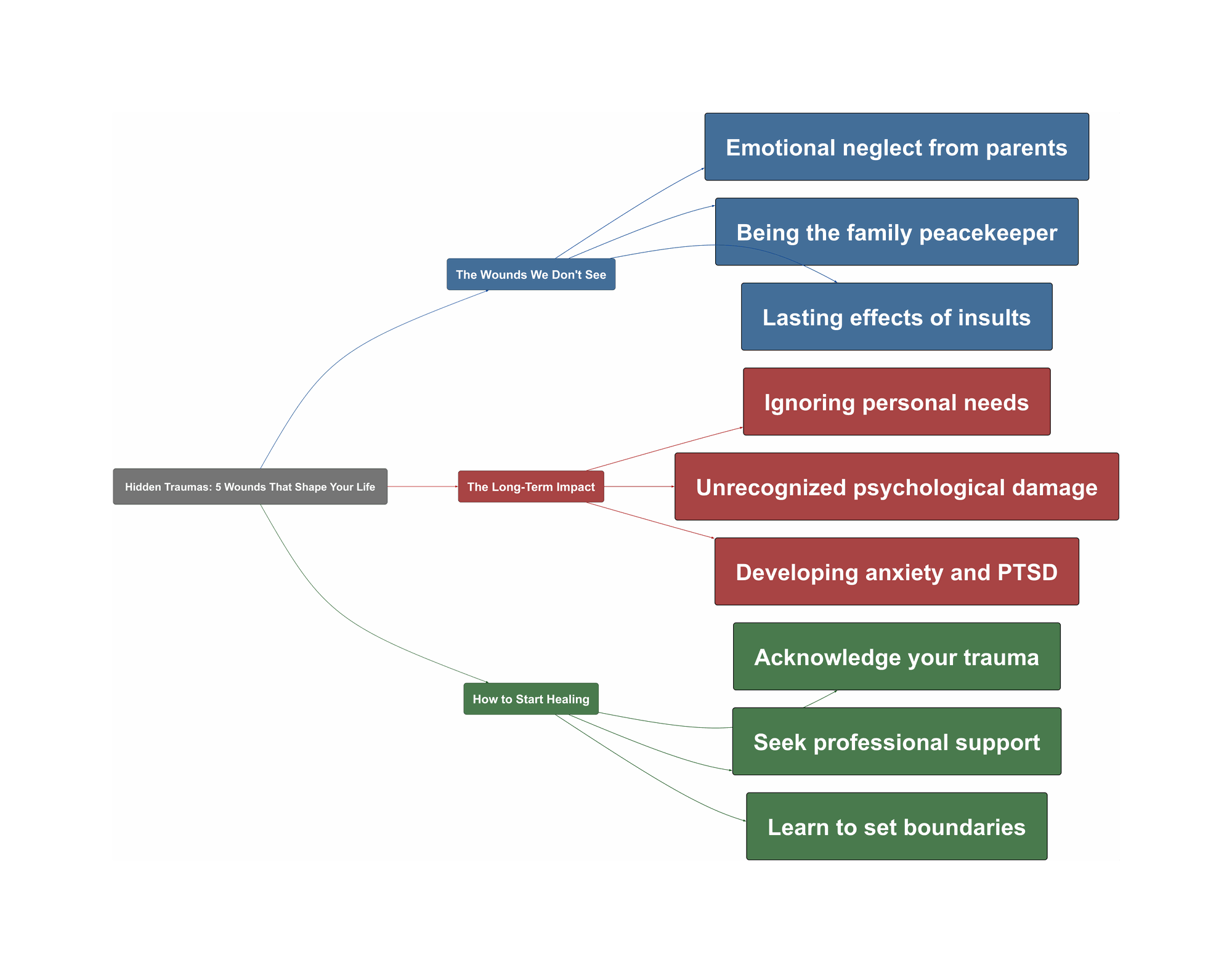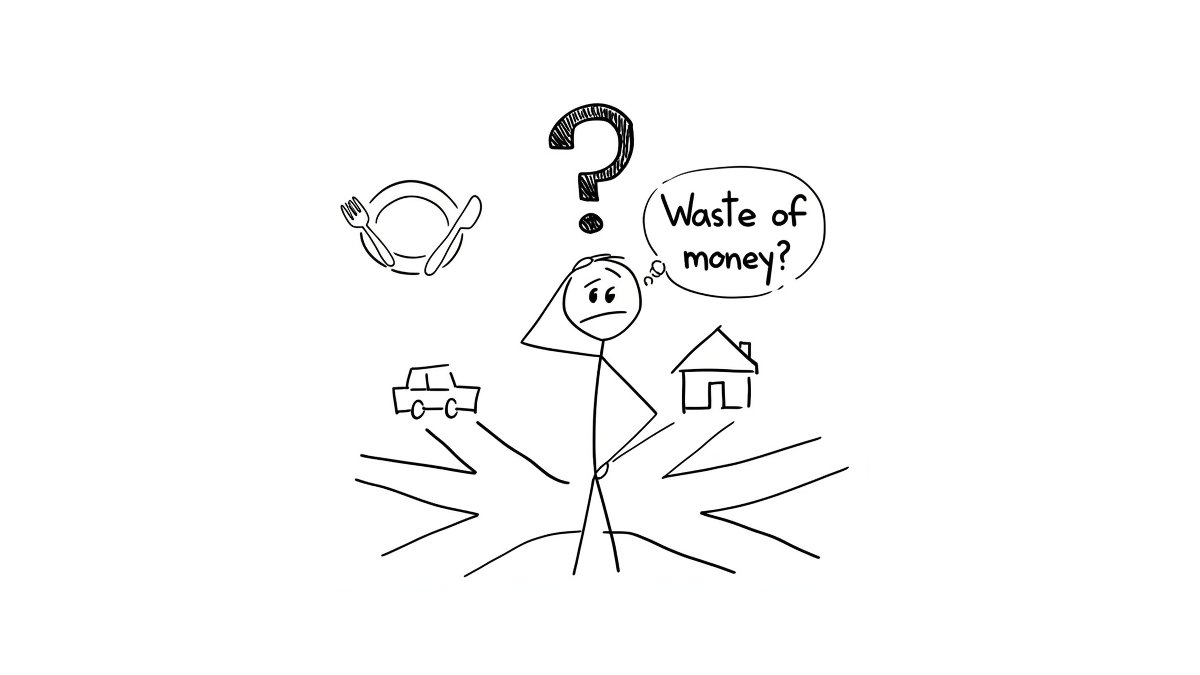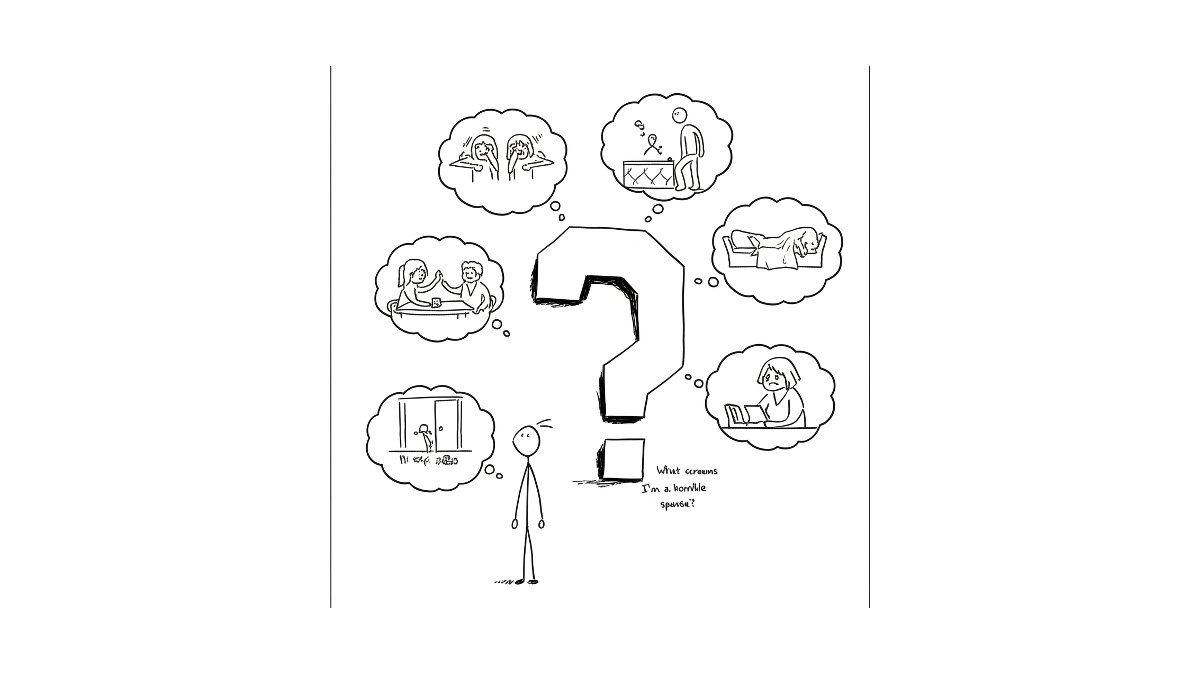Have you ever felt like something from your past holds you back? It might not be a single, major event. Often, the deepest wounds come from experiences that society dismisses as small or insignificant. These hidden traumas can quietly shape our personalities, relationships, and well-being for years.
The Wounds We Don’t See
Increasingly, people recognize that trauma is not always loud and dramatic. Sometimes, it is the quiet, consistent emotional neglect that causes the most harm. Many grow up in homes where they must constantly manage the feelings of others, learning to suppress their own needs in the process. As a result, this environment teaches them that their value is tied to keeping the peace.
“Growing up in a household where you constantly had to ‘manage’ other people’s emotions. It teaches you to ignore your own needs, and that love is something you have to earn by walking on eggshells.”
Furthermore, being the family “peacekeeper” is a common and damaging role. This responsibility forces a child to become emotionally mature beyond their years. Consequently, it can distort their sense of self and create a lifelong pattern of prioritizing others to their own detriment.
“Being the ‘peacekeeper’ in a toxic or dysfunctional family. You grow up thinking it’s normal to suppress your needs to keep everyone else calm and it messes with your sense of self more than you realize.”
The Long-Term Impact
Meanwhile, the consequences of these subtle traumas are anything but small. Seemingly minor insults or constant criticism from childhood can echo for decades. People often internalize these negative words, leading to a lifetime of self-doubt and hurt. These verbal wounds prove that words can indeed cause lasting pain.
“I would say all those ‘little’ insults thrown your way when you were younger. Oh, they didnt mean anything, dont be so sensitive, etc. Decades later, you have not forgotten the words said to you, and you are still hurt by them. Words can hurt for life.”
In other cases, the trauma is more acute but still misunderstood. For instance, caring for a loved one with a severe illness like dementia can be profoundly traumatic. The constant stress can lead to severe mental health issues, such as PTSD and panic attacks, which can completely unravel a person’s life.
“The PTSD was something I wasn’t warned about. The panic attacks. The terror of going to sleep at night alone. My career didn’t survive, my marriage didn’t survive, and I almost didn’t survive.”
How to Start Healing
However, healing from these hidden wounds is possible. The journey begins with acknowledging that your experiences were valid and genuinely traumatic. Your feelings deserve recognition, regardless of what others might say. Therefore, giving yourself permission to feel the pain is a crucial first step toward recovery. From there, you can begin to rebuild and reclaim your sense of self with a few key strategies.
- First, learn to set firm boundaries. Stop taking responsibility for others’ emotions. Practice saying no and prioritizing your own well-being.
- Additionally, seek professional support. A therapist can provide tools to process trauma, manage anxiety, and develop healthier coping mechanisms.
- Finally, practice self-compassion. Treat yourself with the same kindness you would offer a friend. Healing is not a linear process, so be patient with yourself along the way.




